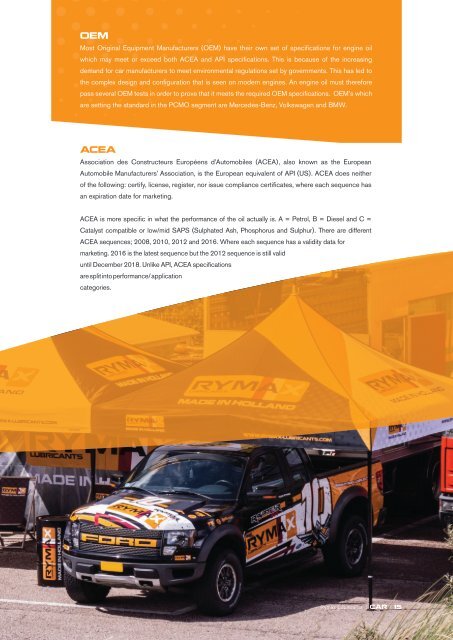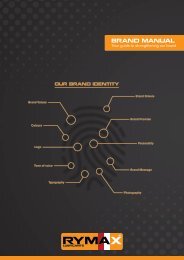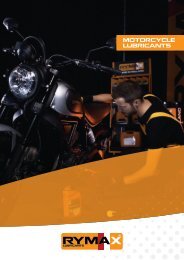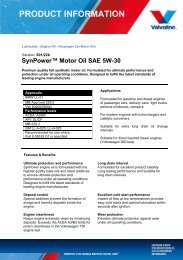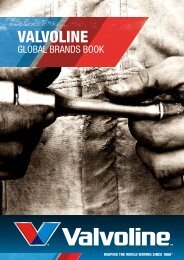Rymax_Brochure_Passenger_Car
New Rymax Lubricants Passenger Car brochures (2018)
New Rymax Lubricants Passenger Car brochures (2018)
You also want an ePaper? Increase the reach of your titles
YUMPU automatically turns print PDFs into web optimized ePapers that Google loves.
OEM<br />
Most Original Equipment Manufacturers (OEM) have their own set of specifications for engine oil<br />
which may meet or exceed both ACEA and API specifications. This is because of the increasing<br />
demand for car manufacturers to meet environmental regulations set by governments. This has led to<br />
the complex design and configuration that is seen on modern engines. An engine oil must therefore<br />
pass several OEM tests in order to prove that it meets the required OEM specifications. OEM’s which<br />
are setting the standard in the PCMO segment are Mercedes-Benz, Volkswagen and BMW.<br />
ACEA<br />
Association des Constructeurs Européens d’Automobiles (ACEA), also known as the European<br />
Automobile Manufacturers’ Association, is the European equivalent of API (US). ACEA does neither<br />
of the following: certify, license, register, nor issue compliance certificates, where each sequence has<br />
an expiration date for marketing.<br />
ACEA is more specific in what the performance of the oil actually is. A = Petrol, B = Diesel and C =<br />
Catalyst compatible or low/mid SAPS (Sulphated Ash, Phosphorus and Sulphur). There are different<br />
ACEA sequences; 2008, 2010, 2012 and 2016. Where each sequence has a validity data for<br />
marketing. 2016 is the latest sequence but the 2012 sequence is still valid<br />
until December 2018. Unlike API, ACEA specifications<br />
are split into performance/ application<br />
categories.<br />
<strong>Rymax</strong> Lubricants | CAR | 15


